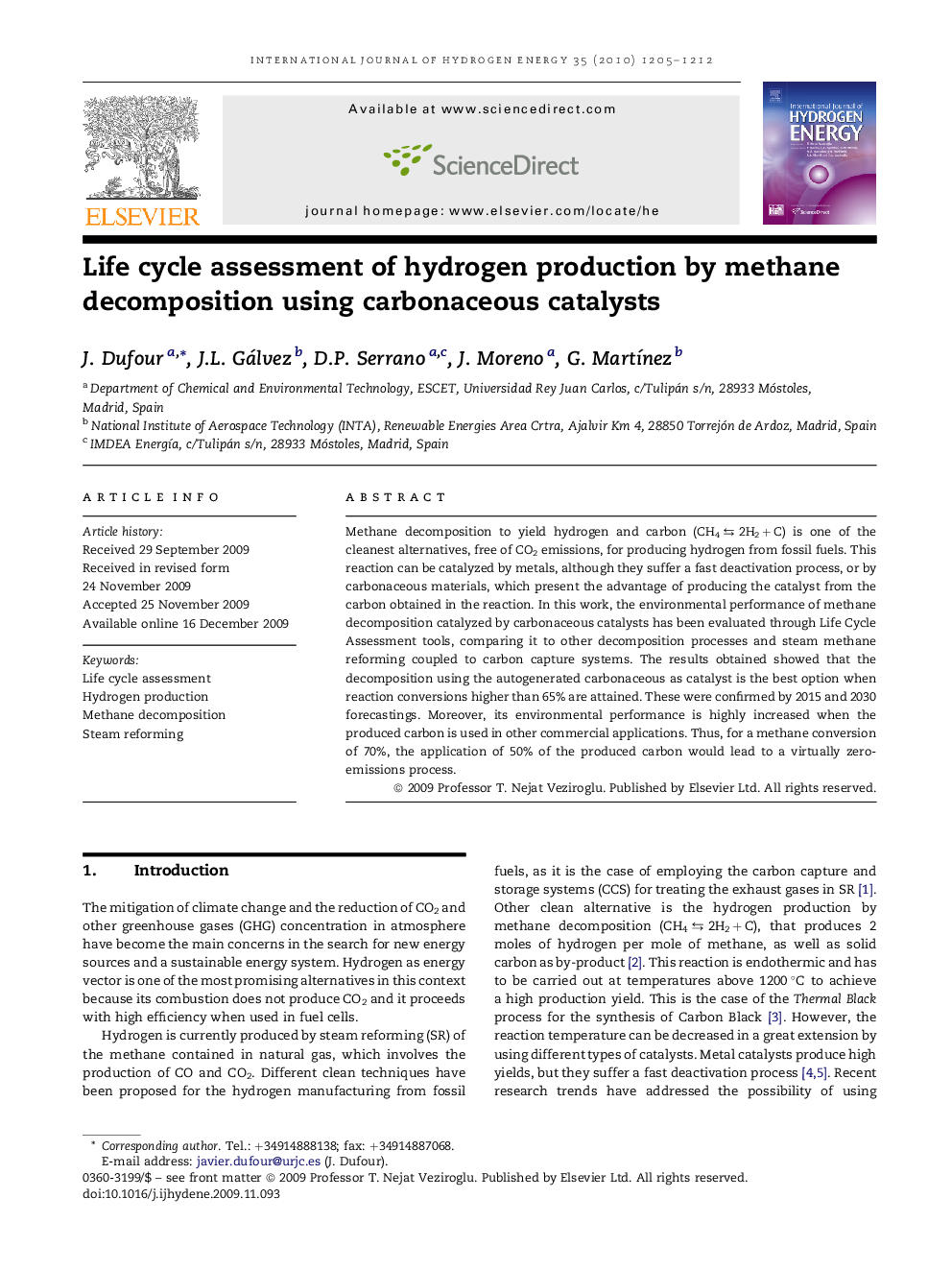| Article ID | Journal | Published Year | Pages | File Type |
|---|---|---|---|---|
| 1273511 | International Journal of Hydrogen Energy | 2010 | 8 Pages |
Methane decomposition to yield hydrogen and carbon (CH4 ⇆ 2H2 + C) is one of the cleanest alternatives, free of CO2 emissions, for producing hydrogen from fossil fuels. This reaction can be catalyzed by metals, although they suffer a fast deactivation process, or by carbonaceous materials, which present the advantage of producing the catalyst from the carbon obtained in the reaction. In this work, the environmental performance of methane decomposition catalyzed by carbonaceous catalysts has been evaluated through Life Cycle Assessment tools, comparing it to other decomposition processes and steam methane reforming coupled to carbon capture systems. The results obtained showed that the decomposition using the autogenerated carbonaceous as catalyst is the best option when reaction conversions higher than 65% are attained. These were confirmed by 2015 and 2030 forecastings. Moreover, its environmental performance is highly increased when the produced carbon is used in other commercial applications. Thus, for a methane conversion of 70%, the application of 50% of the produced carbon would lead to a virtually zero-emissions process.
